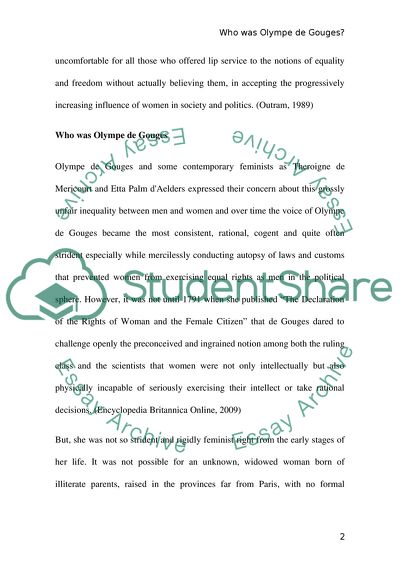Cite this document
(“Preventing Women from Exercising Equal Rights as Men in the Political Research Paper”, n.d.)
Preventing Women from Exercising Equal Rights as Men in the Political Research Paper. Retrieved from https://studentshare.org/history/1727837-who-was-olympe-de-gouges
Preventing Women from Exercising Equal Rights as Men in the Political Research Paper. Retrieved from https://studentshare.org/history/1727837-who-was-olympe-de-gouges
(Preventing Women from Exercising Equal Rights As Men in the Political Research Paper)
Preventing Women from Exercising Equal Rights As Men in the Political Research Paper. https://studentshare.org/history/1727837-who-was-olympe-de-gouges.
Preventing Women from Exercising Equal Rights As Men in the Political Research Paper. https://studentshare.org/history/1727837-who-was-olympe-de-gouges.
“Preventing Women from Exercising Equal Rights As Men in the Political Research Paper”, n.d. https://studentshare.org/history/1727837-who-was-olympe-de-gouges.


